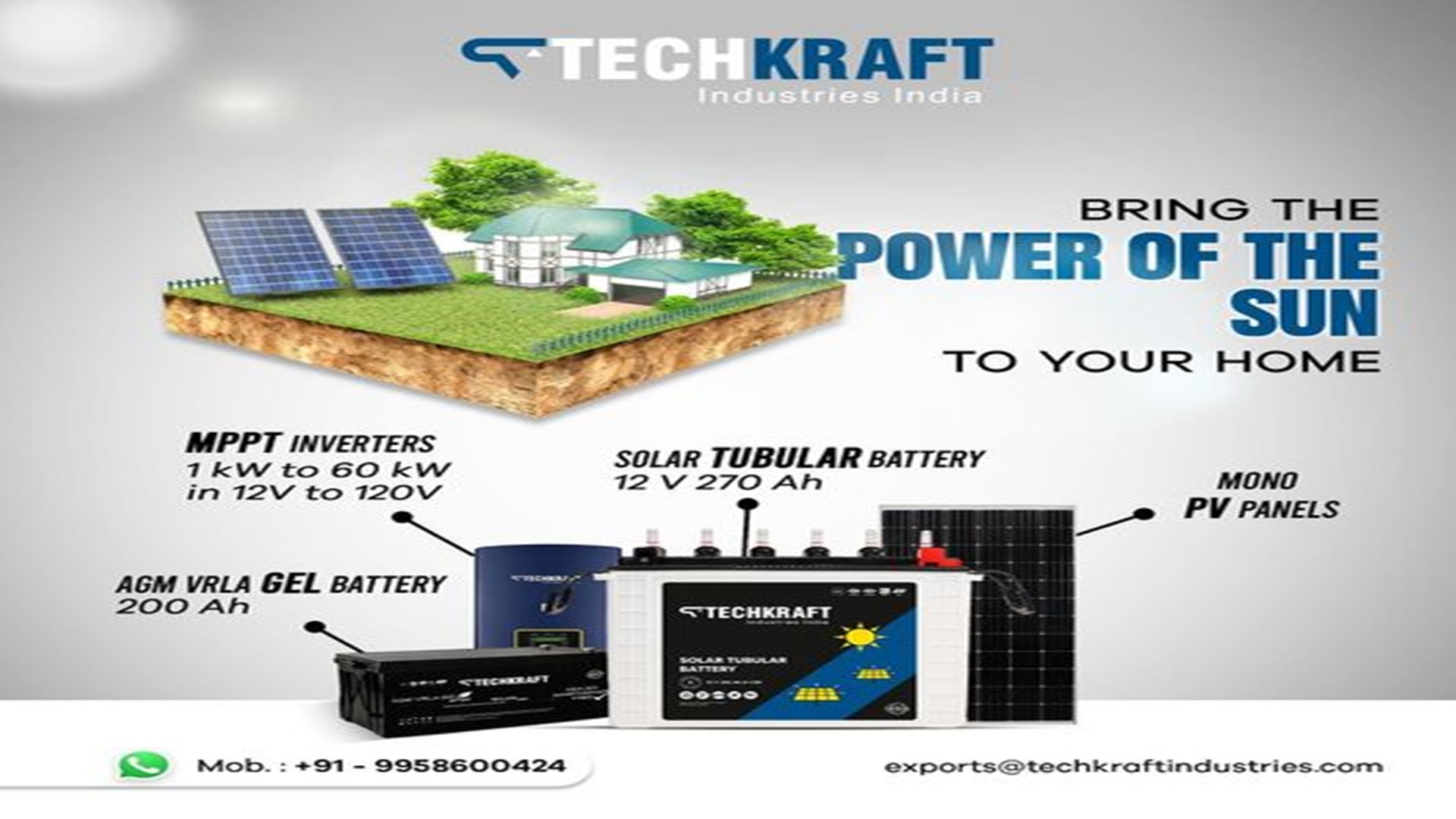With the global shift toward sustainable energy, solar power has emerged as a viable alternative to traditional sources. However, the uncertain nature of sunlight necessitates the storage of excess energy for continuous availability. Let’s discuss the various options available in the market for batteries, the most common are lead acid and lithium-ion batteries. In this blog, Techkraft, a leading solar battery manufacturer will explain the disparities between them.
The points to take in consideration are:
Lead Acid vs. Lithium-Ion Batteries for Home Energy Storage
1. Energy Efficiency:
-Lead Acid Batteries have been around for decades and are known for their affordability. However, they have lower energy efficiency compared to lithium-ion batteries. Lead acid batteries typically deliver around 80% energy efficiency, which means they lose about 20% of the stored energy during the charging and discharging process.
-Lithium-ion batteries are highly efficient, with energy conversion rates of up to 95%. They can store more energy and deliver a higher percentage of that stored energy when used, making them an excellent choice for maximizing the use of solar power in homes.
2. Cycle Life and Lifespan:
-Lead acid batteries have a limited cycle life, typically ranging from 300 to 700 cycles. This means they can be charged and discharged only a limited number of times before their performance starts to decline. On average, lead acid batteries last for around 3-5 years.
-Lithium-ion batteries have a significantly longer cycle life, often exceeding 2,000 cycles. This prolonged lifespan makes them more durable and reliable for long-term use. On average, lithium-ion batteries can last for 10-15 years, depending on usage patterns and maintenance.
3. Size and Weight:
-Lead acid batteries are bulky and heavy, making them less suitable for residential applications where space is limited. Their size and weight can pose challenges during installation and maintenance.
-Lithium-ion batteries are compact and lightweight, making them ideal for residential use. They take up less space, can be mounted on walls or installed in small enclosures, and are generally easier to handle during installation and maintenance.
4.Maintenance Requirements:
-Lead acid batteries require regular maintenance, including checking electrolyte levels, cleaning terminals, and ensuring proper ventilation. They are more prone to sulfation and require periodic equalization charging.
-Lithium-ion batteries are virtually maintenance-free. They do not require regular fluid level checks or specific equalization charging. Once installed, they can be relied upon for years with minimal upkeep.
We can conclude that choosing between lead acid and lithium-ion batteries for home energy storage, lithium-ion batteries have a clear advantage. Their higher energy efficiency, longer lifespan, compact size and lower maintenance requirements make them the more suitable choice for homes.
Techkraft, as a leading solar battery manufacturer, understands the importance of reliable and sustainable energy storage solutions for residential applications, thus providing solar batteries that are both reliable and long lasting.
Follow Us:
